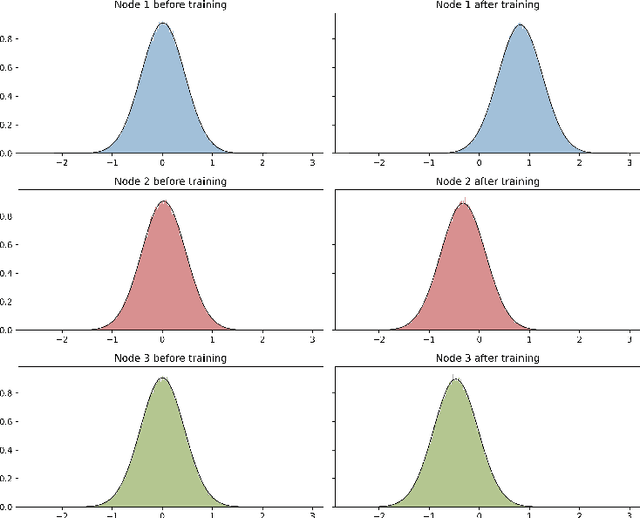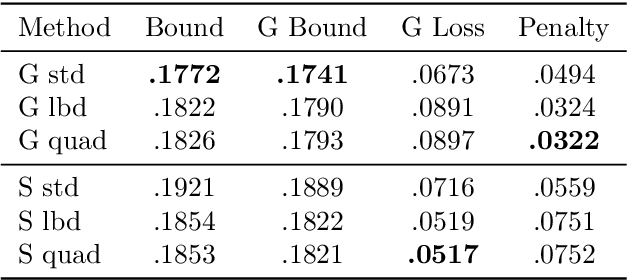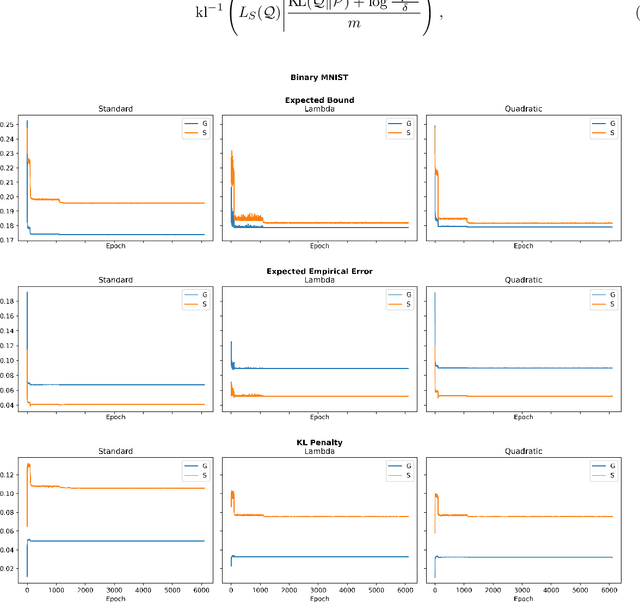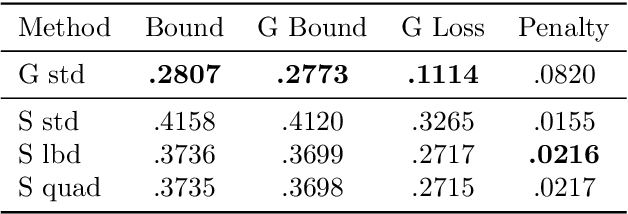Wide stochastic networks: Gaussian limit and PAC-Bayesian training
Paper and Code
Jun 17, 2021



The limit of infinite width allows for substantial simplifications in the analytical study of overparameterized neural networks. With a suitable random initialization, an extremely large network is well approximated by a Gaussian process, both before and during training. In the present work, we establish a similar result for a simple stochastic architecture whose parameters are random variables. The explicit evaluation of the output distribution allows for a PAC-Bayesian training procedure that directly optimizes the generalization bound. For a large but finite-width network, we show empirically on MNIST that this training approach can outperform standard PAC-Bayesian methods.
* 20 pages, 2 figures
 Add to Chrome
Add to Chrome Add to Firefox
Add to Firefox Add to Edge
Add to Edge